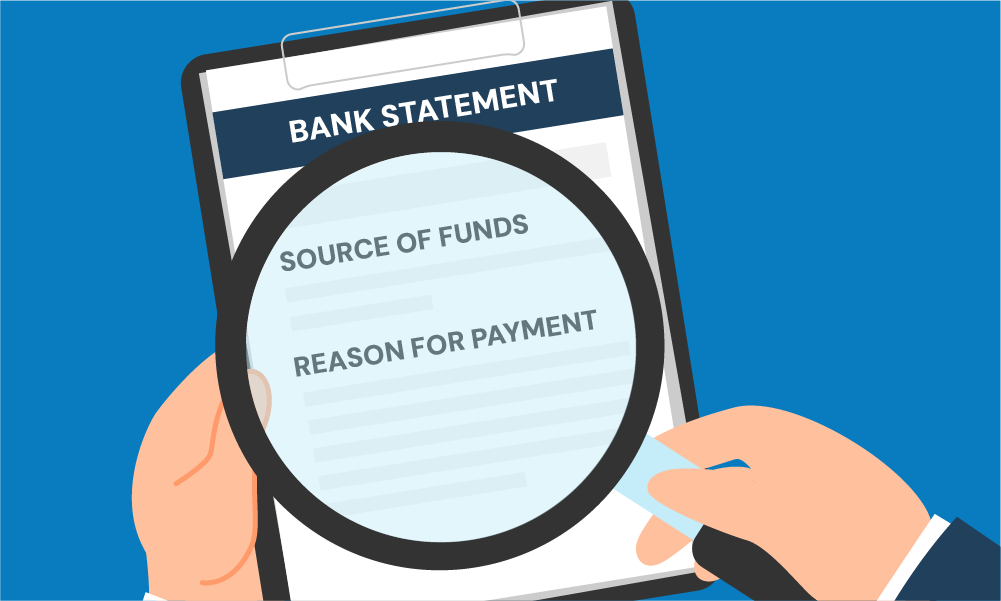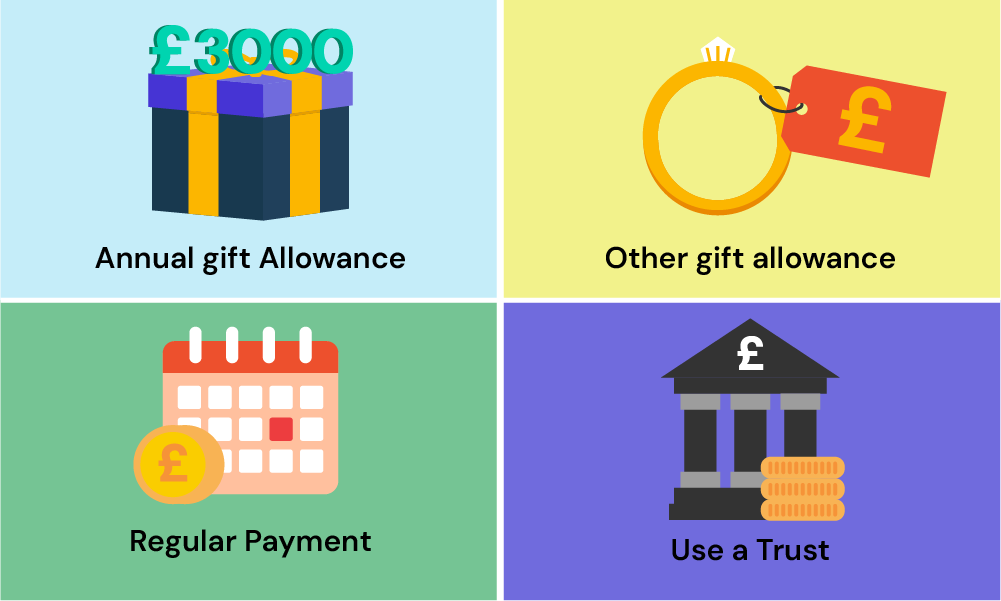Can You Pay Off Someone Else’s Mortgage In The UK?

You might have heard stories of generous parents paying off their children’s mortgages or kind-hearted souls helping out a struggling friend or family member by clearing their home loan.
But can you really pay off someone else’s mortgage in the UK? The answer is yes, but there are some important factors to consider.
Tax Implications of Paying Off Someone Else’s Mortgage UK
Paying off someone’s mortgage in the UK might seem kind, but it could mean tax issues for both of you. Let’s see what those are and how to handle them.
Inheritance Tax on Gifts
A big concern is inheritance tax if you help a relative with their mortgage.
In the UK, you can ‘gift’ £3,000 each year without it affecting your inheritance tax bill. But anything more is a Potentially Exempt Transfer (PET).
A PET is only tax-free if you live for 7 years after giving the money. If you die sooner, the recipient might have to pay inheritance tax on some of it, depending on when you die.
Here’s how much inheritance tax might be due on PETs:
| Years Between Gift and Death | Tax Rate on PET (Percentage of the Gift’s Value) |
|---|---|
| Less than 3 years | 40% |
| 3 to 4 years | 32% |
| 4 to 5 years | 24% |
| 5 to 6 years | 16% |
| 6 to 7 years | 8% |
| 7 years or more | 0% (Gift is fully exempt) |
For example, let’s say you decide to pay off your child’s £200,000 mortgage as a gift. This amount, once paid, would be classed as a PET for IHT purposes.
If you die within four years and your estate (including the gift) is above the nil rate band, your child would owe 24% IHT on the gift (£200,000 x 24% = £48,000).
There’s no IHT if your estate is below £325,000 when you die.
If you’re considering paying off someone’s mortgage, especially as a gift for family or friends, talk to a tax advisor and mortgage broker first.
They can help you understand the tax implications and ensure everything is done correctly.
Can a Family Member Pay Off My Mortgage UK?
Yes, a family member can pay off your mortgage in the UK, but there are some key considerations to keep in mind.
Firstly, your lender will want to know the source of the funds used to pay off the mortgage.
They may ask you to provide bank statements, a written statement explaining the relationship between the payer and payee, and verification of identity for the person making the payment.
Lenders have a responsibility to carry out anti-money laundering checks and ensure that the transaction is legitimate.
They may refuse to complete the transaction if they suspect any fraudulent activity or if there appears to be a tenuous link between the payer and payee.
Secondly, as mentioned earlier, there could be inheritance tax implications for the recipient if the payment exceeds the annual gift allowance and the donor passes away within seven years.

What If a Friend or Non-Relative Wants to Pay Off My Mortgage?
The same rules apply when a non-relative, such as a friend or colleague, offers to pay off your mortgage.
The lender will still require proof of the relationship between the two parties and the source of the funds.
Additionally, the payment will be considered a PET for inheritance tax purposes, and the recipient may be liable for inheritance tax if the donor passes away within seven years.
It’s worth noting that if the payment is not a gift but rather a loan or investment, different tax rules may apply, and it’s advisable to seek professional advice.
How to Avoid Inheritance Tax When Paying Off Someone Else’s Mortgage?
If you’re planning to pay off someone else’s mortgage and want to minimise the inheritance tax implications, there are a few strategies you can consider:

- Make use of your annual gift allowance. Use your annual £3,000 gift allowance. This lets you give money each year without it counting towards your estate for inheritance tax. If the mortgage is small, you could pay it off over several years using this allowance.
- Explore other gift allowances. Beyond the annual gift allowance, you can give up to £5,000 for a child’s wedding and £2,500 for a grandchild’s wedding (per event) without affecting inheritance tax.
- Make regular payments. If you can afford it, consider making regular contributions towards the mortgage instead of a lump sum. These might be exempt from inheritance tax if they’re considered “normal expenditure out of income” and don’t affect your lifestyle.
- Use a trust. Setting up a trust to manage the mortgage payment can reduce inheritance tax, but it’s complex. Seek professional legal and financial advice before going this route.
Key Takeaways
- Paying off someone’s mortgage is possible, but be prepared for checks. Lenders will verify the source of the funds and your connection to the recipient.
- Inheritance tax could apply. If the sum is large and you die within 7 years, the recipient might face inheritance tax.
- Minimise the tax bite. Consider using your annual gift allowance, making regular payments, or setting up a trust (seek advice first).
- Get expert help. Talk to a qualified tax advisor and mortgage broker to ensure everything is done correctly and minimise tax implications.
The Bottom Line
Paying off someone’s mortgage in the UK can be a generous gesture, but it’s important to be aware of the potential consequences.
First, consider consulting with a tax advisor. They can explain the potential tax implications for both you and the recipient, ensuring everyone benefits financially from your generosity.
Open communication is crucial. Discussing the purpose of your contribution and any expectations upfront will avoid any misunderstandings down the line.
Be clear about your intentions and ensure the recipient is comfortable with the terms.
Finally, get in touch with the mortgage lender directly. They will have specific guidelines for accepting such payments. Contacting them directly streamlines the process and ensures a smooth transaction.
It’s important to get expert advice before you proceed. Contact us today and get matched with a qualified mortgage broker today to discuss your options.
Get Matched With Your Dream Mortgage Advisor...

Frequently asked questions
Can someone else pay off my mortgage in the UK?
Yes, someone else can pay off your mortgage in the UK. However, the lender will ask for proof of the source of the funds and the relationship between the payer and the payee.
The lender will conduct anti-money laundering checks to ensure the transaction is legitimate.
Be prepared to provide bank statements, identity verification for the person making the payment, and a written statement explaining the relationship.
Should I pay off my mortgage with Inheritance UK?
It depends on your financial situation and goals. Paying it off can give you peace of mind and save a chunk of interest.
But remember, there might be early repayment fees, you could miss out on tax breaks for mortgage interest, and there might be better uses for the money.
How much does it cost to take someone off a mortgage in the UK?
Taking someone off your mortgage in the UK typically costs between £200 and £1,000.
Here’s what it covers:
- Legal fees – You’ll need a solicitor to handle the paperwork. These can range from £200 to £500
- Administration fees – Lenders often charge an administration fee for processing the removal, which can be around £50 to £300.
- Remortgaging fee (if applicable) – If you need to change the mortgage terms, there could be a remortgaging fee.
This article has been fact checked
This article was created, checked, and verified by the expert team at Money Saving Guru. Trust us, you’re in good hands.




